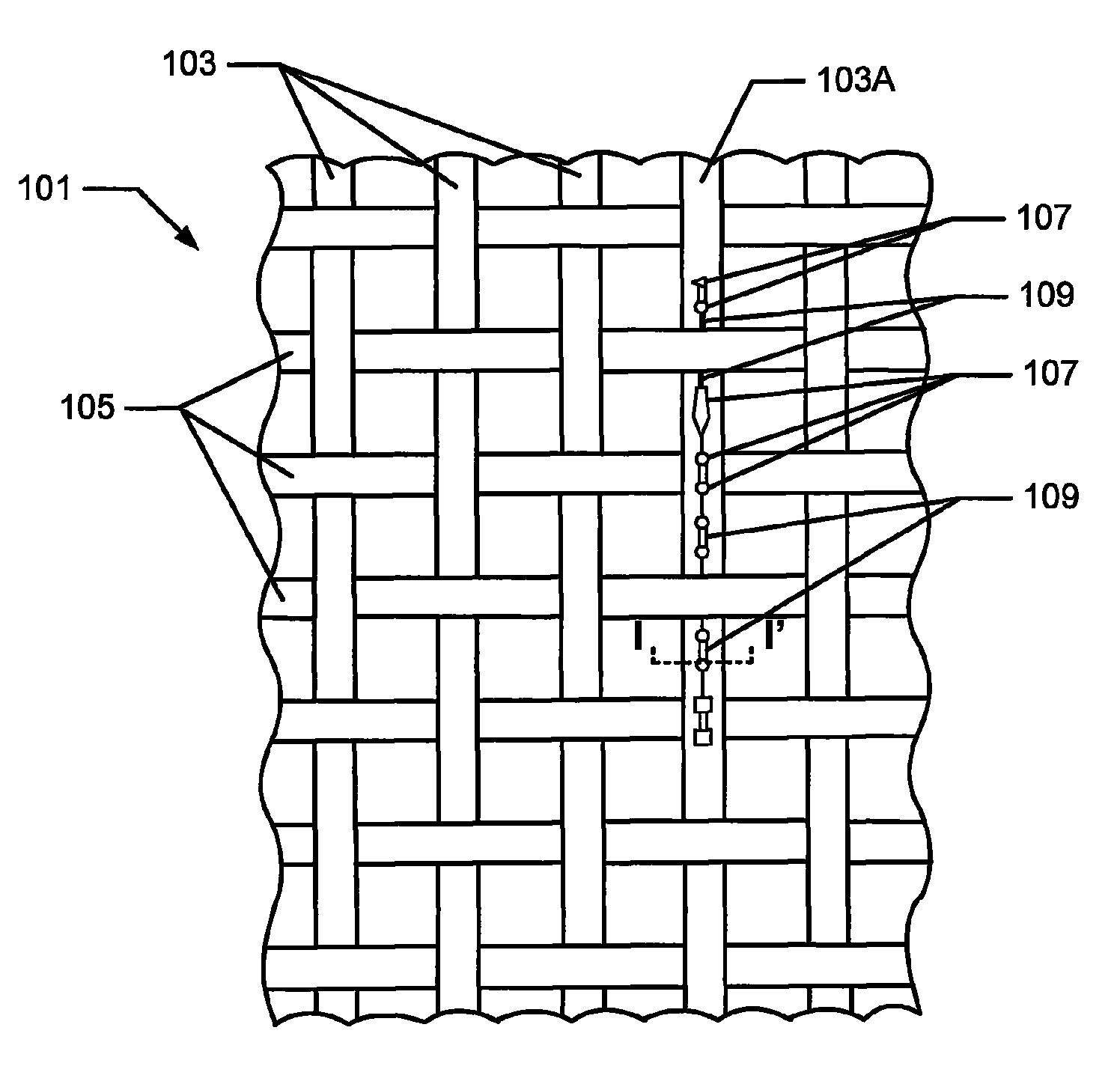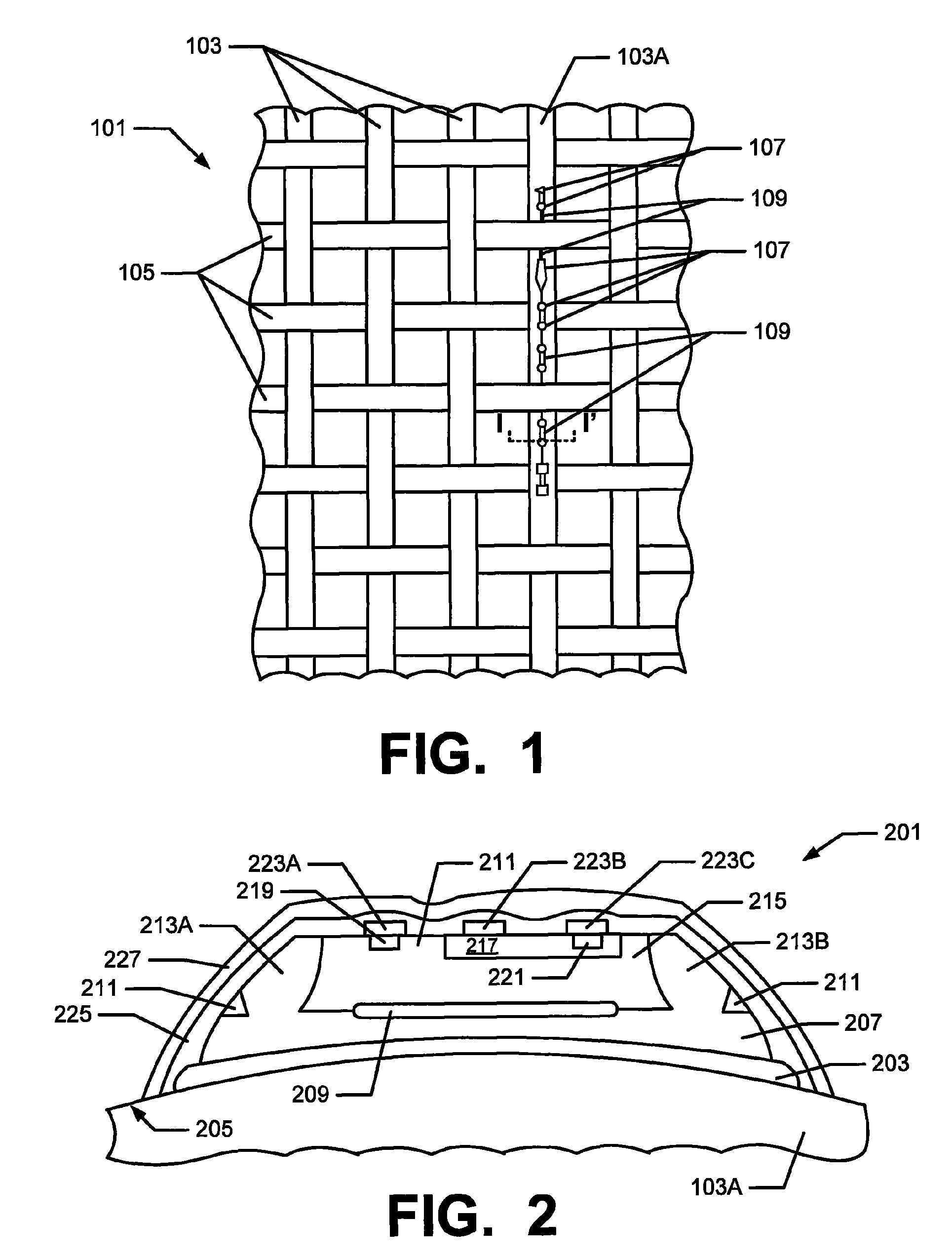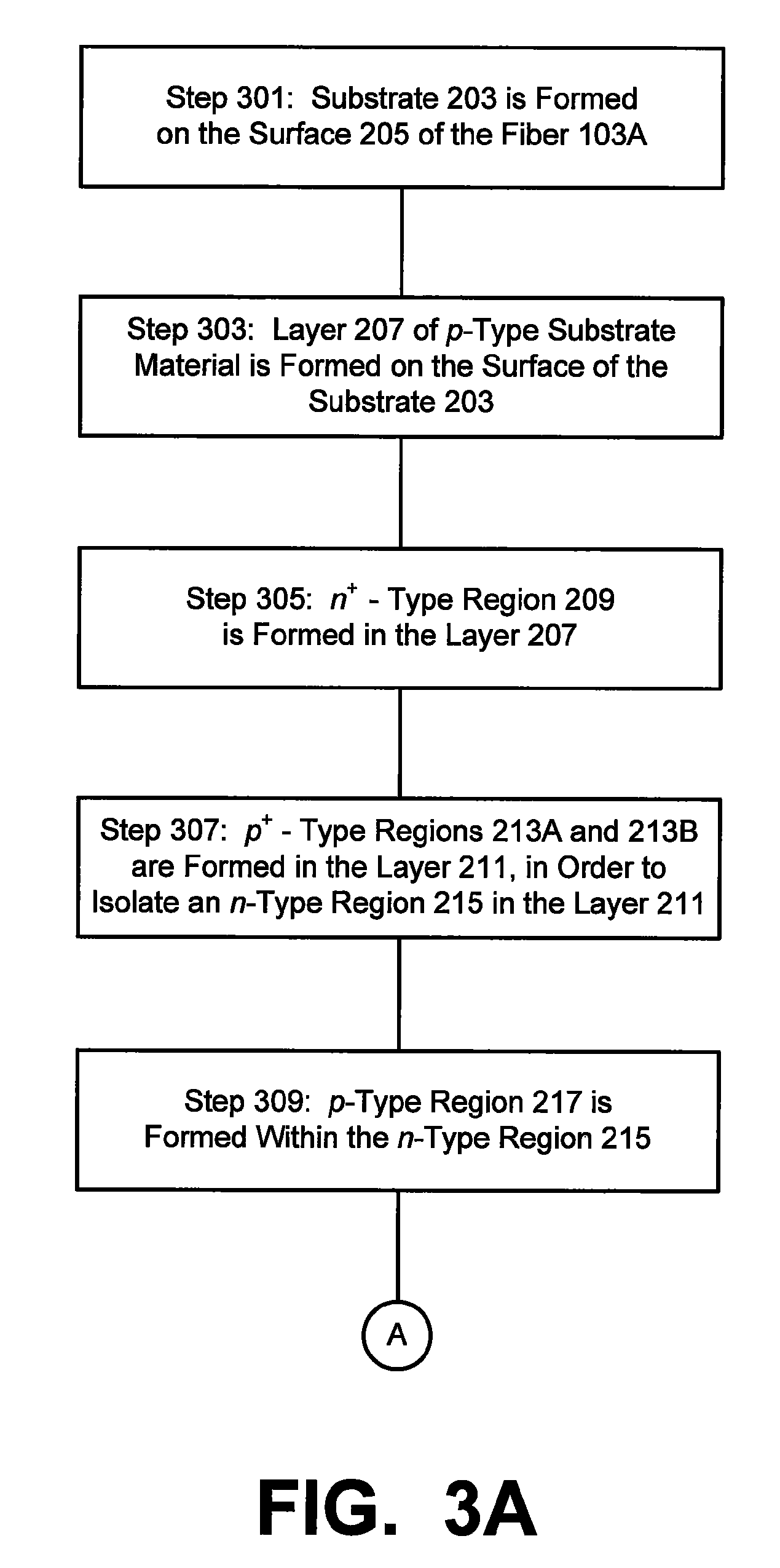Deposition of electronic circuits on fibers and other materials
a technology of electronic circuits and fibers, applied in vacuum evaporation coatings, heat inorganic powder coatings, sputtering coatings, etc., can solve the problems of inconvenient transportation of even a single portable electronic device, insufficient storage or attachment of the portable electronic device itself, and the weight of the portable device itsel
- Summary
- Abstract
- Description
- Claims
- Application Information
AI Technical Summary
Benefits of technology
Problems solved by technology
Method used
Image
Examples
Embodiment Construction
[0013]FIG. 1 illustrates a textile material according to one embodiment of the invention. In this figure, a piece of woven fabric 101 includes warp fibers 103 and weft fibers 105. The fibers 103 and 105 may be any fibrous material suitable for forming wearable items. For example, one or more of fibers 103 and 105 may be natural fibers, such as cotton, wool, silk, or leather. One or more of fibers 103 and 105 may also be formed of any inorganic material suitable for weaving a fabric, such as, e.g., polyester, nylon, polypropylene, or rayon. Of course, the specific fiber materials listed above are for exemplary purposes only and should not be considered limiting.
[0014]As illustrated in FIG. 1, the warp fiber 103A has a number of electrical components 107 formed thereon. As will be explained in detail below, the electrical components 107 may be any type of structure that can be formed using conventional integrated circuit fabrication techniques. The electrical components 107 may be, fo...
PUM
| Property | Measurement | Unit |
|---|---|---|
| diameters | aaaaa | aaaaa |
| diameters | aaaaa | aaaaa |
| speed | aaaaa | aaaaa |
Abstract
Description
Claims
Application Information
 Login to View More
Login to View More - R&D
- Intellectual Property
- Life Sciences
- Materials
- Tech Scout
- Unparalleled Data Quality
- Higher Quality Content
- 60% Fewer Hallucinations
Browse by: Latest US Patents, China's latest patents, Technical Efficacy Thesaurus, Application Domain, Technology Topic, Popular Technical Reports.
© 2025 PatSnap. All rights reserved.Legal|Privacy policy|Modern Slavery Act Transparency Statement|Sitemap|About US| Contact US: help@patsnap.com



